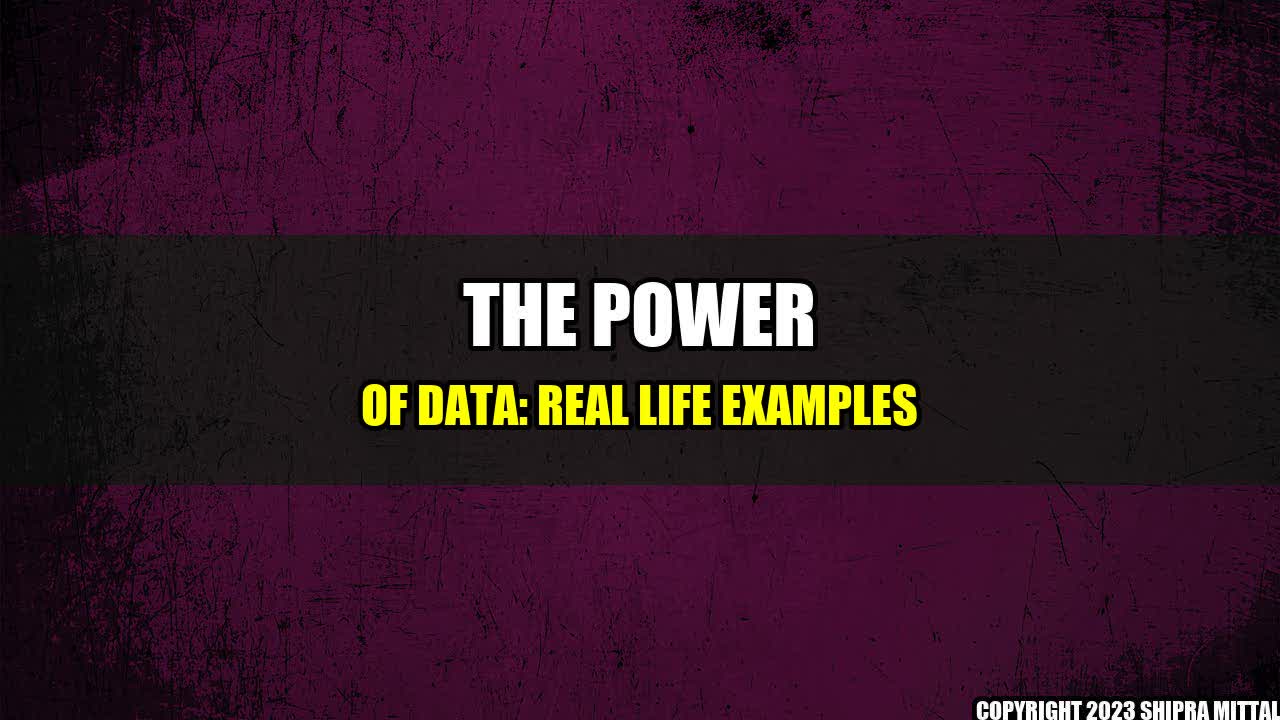Have you ever wondered how companies like Amazon, Netflix, and Spotify are able to provide such personalized recommendations to their customers? Or how Google Maps can predict traffic patterns and suggest alternative routes in real-time? The answer lies in the power of data.
Let's start with a story. Imagine you're a homeowner and you've been getting ads for a company offering lawn care services. You've never shown an interest in lawn care, but you can't seem to shake the ads. Irritated, you call the company to demand they stop targeting you.
The customer service representative apologizes and explains that their data showed you as a homeowner with a yard and they assumed you would be interested. However, after digging deeper, they realized their data was wrong - you actually live in a high-rise apartment complex. They update their records and promise to stop sending you ads.
This story illustrates the importance of accurate data. Without it, companies risk irritating customers and wasting resources on ineffective advertising.
Real life examples of companies using data to their advantage abound. Amazon's recommendation engine suggests products based on past purchases and browsing history. Netflix uses data to personalize movie and TV show recommendations, resulting in a more enjoyable user experience. Spotify's Discover Weekly playlist is curated based on user listening history and trends.
But data isn't just for consumer-facing companies. B2B companies can also benefit. For example, IBM uses data to predict equipment failures, allowing them to make proactive repairs and minimizing downtime for their clients.
Ultimately, the companies that succeed are those that can effectively collect and analyze data to make more informed business decisions. But with great power comes great responsibility. There are concerns over data privacy and ethical considerations such as algorithmic biases. Companies must be transparent in their data collection and usage, and work to address any ethical issues that arise.
Conclusion:
- Data is a powerful tool for companies to personalize customer experiences and make informed business decisions.
- Accurate data is crucial to avoiding wasted resources and irritating customers with irrelevant advertising.
- Transparency and ethical considerations are important to ensure responsible data usage.

Akash Mittal Tech Article
Share on Twitter Share on LinkedIn